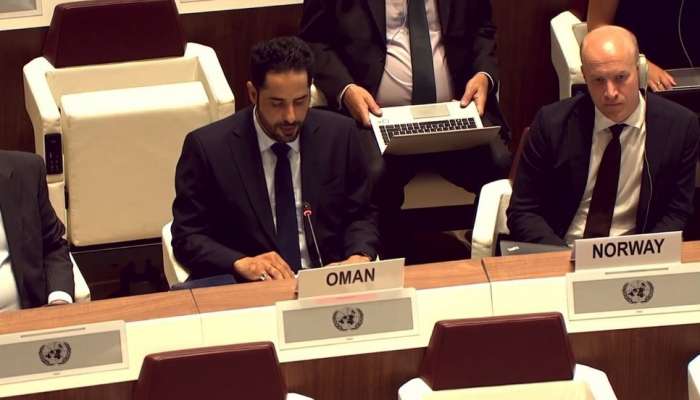The Sultanate of Oman emphasized the urgent necessity of establishing a nuclear-weapon-free zone (NWFZ) in the Middle East to promote security and stability in the region. Dr. Salim Issa Al Ma’ashani, Director of the Disarmament and Arms Control Affairs Office at the Foreign Ministry, highlighted the various benefits of creating an NWFZ, including political, geopolitical, economic, and humanitarian advantages for the Middle East and the global community. Oman also underscored the potential for enhanced regional and international cooperation, increased confidence-building measures, and opportunities for investment in civil nuclear technology, while simultaneously reducing military spending and fostering a more stable political environment.
During the meeting of the Second Preparatory Committee for the 2026 Review Conference of the Parties to the Treaty on the Non-Proliferation of Nuclear Weapons (NPT) in Geneva, Oman called on Depositary States and Sponsoring States of the 1995 Resolution to fulfill their obligations. Oman expressed regret over the obstruction of the 2015 conference by two depositary states in favor of Israel, which resulted in the conference failing to produce a final document. This hindrance was viewed as a disregard for the non-proliferation system, particularly in light of Israel’s ambiguous and non-transparent nuclear program. Oman condemned this act as a violation of international disarmament efforts and a breach of international law, urging the global community to pressure Israel to comply with Security Council Resolution No. 487 of 1981.
Oman urged participants in the 2026 Review Conference and its Preparatory Committee to support the implementation of the 1995 resolution on the Middle East and to recognize the progress made in this regard. The country emphasized the importance of holding Israel accountable for its nuclear facilities by submitting them to the Comprehensive Safeguards System of the International Atomic Energy Agency and joining the NPT as a non-nuclear state without pre-conditions or negotiations. Oman called for the enforcement of international resolutions that penalize irresponsible nuclear threats, stressing the need for clear outcomes and acknowledgment of advancements in promoting a nuclear-weapon-free zone in the Middle East.
In conclusion, Oman’s stance on the establishment of a nuclear-weapon-free zone in the Middle East reflects its commitment to enhancing regional and global security. The country’s call for increased cooperation, confidence-building measures, and investment in civil nuclear technology align with efforts to reduce military spending and create a more stable political landscape. By urging the international community to pressure Israel to comply with relevant resolutions and join the NPT, Oman aims to promote disarmament efforts and advance peace and security in the region. As discussions continue at the 2026 Review Conference, Oman’s advocacy for a nuclear-weapon-free Middle East serves as a driving force towards achieving a safer and more peaceful world.


























